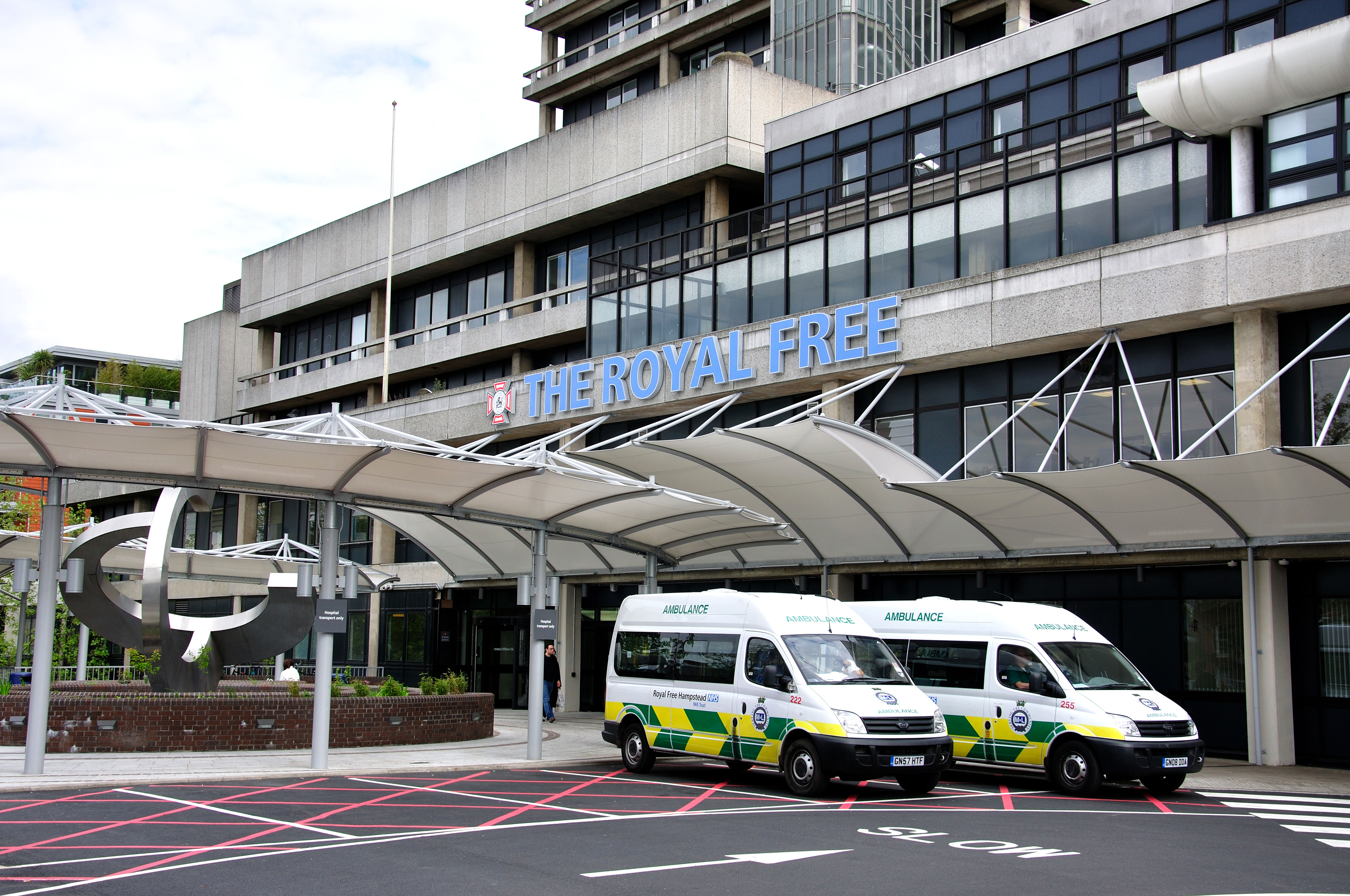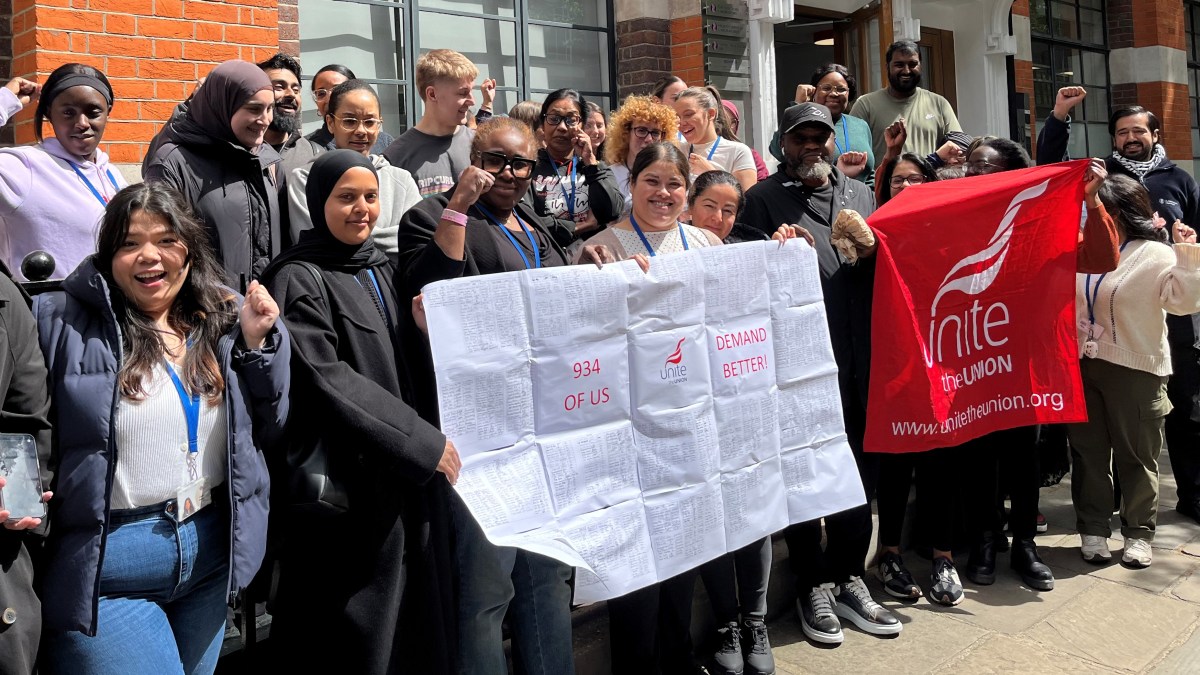Hundreds of laboratory staff at the UK’s largest private pathology testing company are to go on strike next month, causing widespread disruption to both NHS and independent hospitals.
The walkout by staff at Health Services Laboratories is expected to force the cancellation of NHS operations and affect blood-testing for private clinics across England.
More than 570 scientists and technicians voted to strike last week in a bitter dispute with the company over pay, staffing and patient safety concerns. Negotiations since April failed to reach an agreement.
HSL operates the Halo laboratory near King’s Cross, London, which handles tens of thousands of tests for healthcare customers across England as well as seven large NHS hospitals, including five A&E departments, in north London. It also deals with all cervical cancer screening for Greater London and testing for NHS hospitals in Hertfordshire and parts of Essex.
The three-day strike starting on September 3 threatens to shut down most of the laboratory testing, meaning delays to operations. It will also affect urgent tests for A&E staff, maternity wards and critical care services.
HSL is a joint partnership between two NHS hospitals in the capital, the Royal Free and University College London (UCLH), and the Doctors Laboratory, a private company.
The laboratories carry out more than 70 per cent of all the diagnostic blood, skin and tissue testing at hospitals including North Middlesex, Whittington, Ealing, Northwick Park and Barnet. The Royal Free is a major trauma centre, treating some of the most seriously injured patients in the capital.

The Royal Free in Hampstead, northwest London
ALAMY
Large private clinics that could be be affected include the Fetal Medicine Centre in Harley Street, Circle Health Group facilities and the Centre for Reproductive and Genetic Health on Great Portland Street. The company also has contracts with private hospitals across England.
The dispute has intensified because some staff are angry about claims that workers employed by HSL are paid up to 27 per cent lower than former NHS staff that have been outsourced to the company. Staff also complain their terms and conditions have been eroded since the work was privatised.
Unite, the union, has also criticised the company for taking on new contracts, with thousands of extra tests a day to be processed despite no increase in staffing or capacity.
On Wednesday, 94 per cent of staff, more than 570, voted for strike action. One worker at the main Halo lab said: “I worry about the degradation of the quality of care that NHS patients will receive because of this constant move to outsource work to private labs.
“Lab staff don’t like to speak up and we don’t want to strike but we have a real responsibility to our patients. I have colleagues that are paid £5,000 to £20,000 less a year than they should be. I want real change when it comes to how we’re handling our workload. I want safe staffing so we have the quality of staff to get the work done.”
• Tom Whipple: Joyful story of how we’re beating cancer will outshine antivaxers
A biomedical scientist who works at an HSL lab inside an NHS hospital in north London said that at one point this year their lab was receiving 1,500 extra tests after HSL moved work there from the Lister hospital, in Stevenage, without any more staff to help process them.
“There was no consultation, no proper planning,” they said, adding that as a result urgent tests were delayed by days before being sent back to wards.
They said staff were under immense pressure to process routine tests while juggling critically urgent samples from A&E, intensive care and maternity wards. “ There’s going to be a lot more patients who are going to be affected if this doesn’t get sorted,” they said. “It has to stop.”
Unite wants the company to promise to share information about new contracts and increases in work ahead of time and to increase staffing levels to help shortages. It also wants improved pay structures and better conditions around sickness, holiday and training.
• Cancer patients missing treatment due to tumour testing delays
The union says the lack of safe staffing in the labs could directly affect patient care on the wards if tests are delayed, rushed or fail to be processed on time. It claims average real-terms pay among staff has fallen 31 per cent since 2020 while HSL and its parent company make significant profits.
HSL, owned by the Australian healthcare company Sonic, made almost £100 million last year, the union said, with £50 million going to shareholders. The pay of the HSL chief executive, David Byrne, rose by 40 per cent last year.
The company is chaired by Lord Carter of Coles, a Labour peer who in 2006 published a review into restructuring pathology labs across the NHS. He advocated the privatisation of pathology testing and the creation of so-called hub-and-spoke models, where one central lab worked with satellite labs in hospitals to process the majority of tests.

Lord Carter of Coles, chair of HSL
Mark Boothroyd, a nurse and regional organiser for Unite, said: “Our members are determined to force the issue because they’ve had enough. We don’t want to be taking this action, but we feel our hands have been forced by the employer not going far enough. They have had enough of being exploited and underpaid.”
